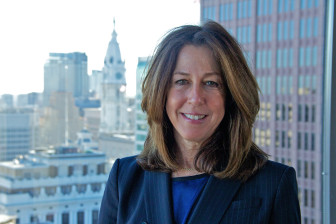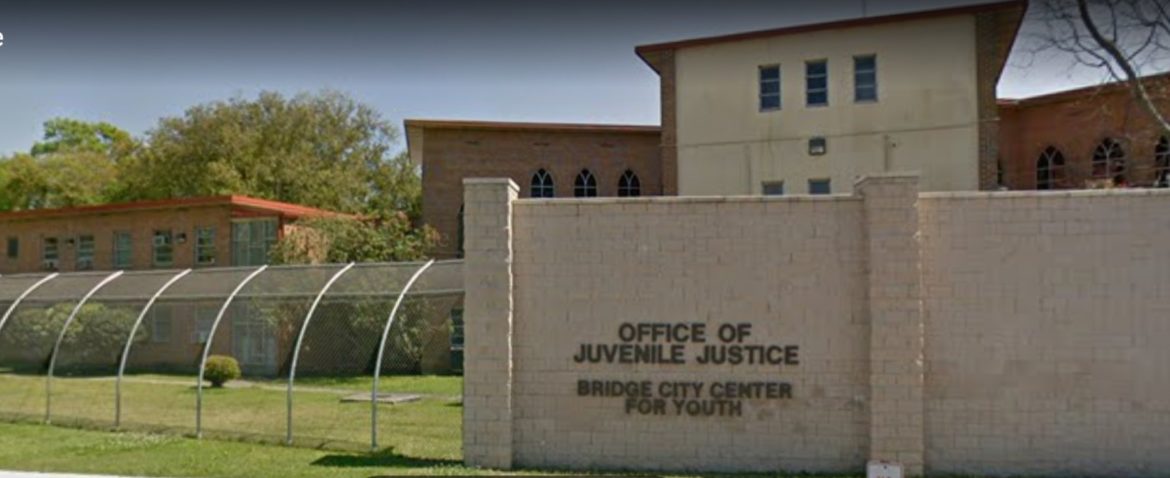Two months ago, her son, now 20, had spent the weekend on furlough, being a regular kid instead of a youth locked up in one of Louisiana’s juvenile detention centers.
While an ankle monitor measured his compliance with orders to stay at home, he’d found joy for three days in simple activities like mowing the yard and eating boiled crawfish. He was able to take a shower and use the restroom without asking permission first.
But his time was cut short. Though he had been scheduled to stay a long weekend, through Tuesday, his family was instructed to return him to the Bridge City Center for Youth in Bridge City a day early. The facility was preparing for lockdown as the coronavirus slammed into Louisiana, which soon would become an epicenter for the worldwide pandemic.
During the lockdown, to prevent spread of the virus, no young people could leave and no parents could visit, his mother said. She didn’t want her name used because it would identify him as a youth offender for a charge that would otherwise be kept confidential within the juvenile system.
Once they got to Bridge City, his mother hugged him goodbye and reminded staff that he was scheduled to be released in September anyway. “Can’t we just keep him home?” she asked.
Not possible, she was told.
Two months into the crisis, feeling she had run out of options to help her son, the mother joined a class-action lawsuit filed last week against the Louisiana state Office of Juvenile Justice.
A lost opportunity?
But Louisiana is far from the only place that has failed to release youth from its secure care facilities, said Marsha Levick, chief legal officer of the Juvenile Law Center, who is co-counsel on the lawsuit. “This is a national story,” she said, noting that her public interest law firm is also involved in litigation in Pennsylvania on behalf of youth held in state juvenile facilities there.
“Kids are not being released in big numbers,” she said. “Populations are not going down in most places. And yet there is only one way to properly social distance in facilities like this and that’s to reduce populations.”
Levick sees a lost opportunity in Louisiana, which typically uses its furlough program to move youth with good conduct toward release. “It’s a way of IDing kids who are able to go home. But instead of using it to send kids home because of COVID, they shut it down,” she said.
In fact, the day after she’d returned her son to Bridge City, his mother emailed the head of OJJ, asking that her son be transferred from his Bridge City dorm, which sleeps 12, to her home, where he would be in contact with only four people: his parents and two siblings. She also asked for a modification of his sentence. “Basically, I was explaining, ‘I can keep him safer than you can,’” she said.
She was told that the state couldn’t release him. “They said that the governor’s stay at home order meant the kids had to stay at the Bridge City. That’s how OJJ interpreted it,” she said.

Juvenile Law Center
Marsha Levick
OJJ did not confirm that their administrators had interpreted the law in that way or respond at all to calls and email asking for a response.
The mother also requested an extended furlough for her son, but OJJ has not granted any furloughs during the lockdown.
In mid-March, the mother was worried about her son in Bridge City but was able to hold out some hope, even as the number of coronavirus cases exploded nationally. At that time, advocates and lawyers for juveniles in Louisiana and elsewhere were making a big push for state and local officials to ramp up facility hygiene, provide free phone calls for frightened youth and release as many secure care youth as possible, especially those who became infected and those facing nonviolent charges.
Levick, too, remembers feeling hopeful in the beginning, because it seemed untenable to keep 50,000 youth in custody across the United States in the face of a virulent virus. “It’s a huge number of kids and we now know that they are all vulnerable; we can’t predict who will get really sick and for whom nothing will happen,” she said. “It feels like we couldn’t leave all these children in these places that are breeding grounds for infection.”
Mixed record on releases nationwide
Today, the mother has less hope, because she has seen little progress.
Nationally, the Annie E. Casey Foundation found in a survey of juvenile justice agencies in 30 states that local, pretrial detention center populations had dropped by 24% between March 1 and April 1, largely because of halted admissions.
Through a list of news reports catalogued by Liz Ryan from the Youth First Initiative, it’s clear that several states have made meaningful releases of youth from secure care. By late April, Maryland had freed about 200 youth and Georgia given early releases to nearly 100 juveniles in response to the pandemic.
Judge Steven Teske, who sits on the Georgia Department of Juvenile Justice’s advisory council, assessed every detained child in his county and released all but four. “Thankfully, I know a growing body of jurists who do what’s best for kids,” he said. “I think there are more out there doing what’s best for kids during this pandemic, but it may not seem so, because it’s those that aren’t doing much or a damn thing that get our attention.”
In Louisiana, state Supreme Court Chief Justice Bernette Joshua Johnson issued a letter to judicial officers in early April, asking that they “consider” not detaining youth for minor crimes and determine whether dispositions could be modified to release some youth early.
It was unclear what effect the judge’s letter has had on total juvenile populations. Though no one was tracking overall statewide releases, the defense attorneys from Louisiana Center for Children’s Rights in New Orleans said that none of their clients had secured a modified disposition or been released.
For the mother of the young man in Bridge City and other frustrated parents, legal action seemed to be the only option.
Louisiana’s OJJ was sued in U.S. District Court in New Orleans on Thursday by a group of public interest lawyers representing youth who have been confined in the agency’s four secure care facilities.
“Our lawsuit alleges that OJJ’s insufficient response to COVID-19 is punishment rather than rehabilitation and places confined youth at significant risk of serious physical, mental, developmental, and emotional harm,” the attorneys’ statement said. They are from the Juvenile Law Center, the Promise of Justice Initiative, a New Orleans justice-focused nonprofit; Louisiana defense attorney John Adcock; and Los Angeles law firm O’Melveny & Myers LLP.
The lawsuit asks the court to order the “immediate release” of youth who can be sent home to their families and revise OJJ’s “virtually non-existent COVID-19 response” for those who remain in custody by implementing protocols recommended by the Centers for Disease Control and Prevention, including social distancing along with proper sanitation and hygiene.
Positive cases and boredom
The suit’s complaints match what the mother of the youth from Bridge City has heard from her son. Within a few weeks of the OJJ lockdown, seven Bridge City youth and four staffers had tested positive, in numbers that topped the nation at the time, according to The Sentencing Project — no other single juvenile facility was even close in the number of people whose tests had come back positive.
In recent weeks, numbers of COVID-19 cases have remained static, at 28 youth and 41 staff who tested positive at its four sites, according to OJJ’s data posted on its website. But critics believe that the lack of new cases is largely explained by curtailed testing. Since the pandemic hit, the agency has only tested 29 youth overall, with a 97% positive rate.
Bridge City’s numbers now stand at 10 COVID-positive youth and 21 staff, amounting to about half the positive people found within OJJ’S four secure juvenile facilities.
The young man from Bridge City calls home “all the time,” said his mother, who believes he’s worried. He gets a free weekly Zoom call and two free phone calls each week; his family pays for the rest, which adds up to about $250 a month.
The calls may also be the result of boredom, she said, because at Bridge City they have been on 23-hour lockdowns with no formal rehabilitative or educational programming. The mix of boredom and fear led to a riot last month that the mother heard through her son’s dormitory phone during a stressful phone call.
Though the fracas was in another dorm, she understood the root of it, she said, in her affidavit for the lawsuit: “Tension is very high and there are children there who are not able to talk to or see their family. They have a lot of anxiety and stress and fear built up because of the circumstances. It is a recipe for disaster.”
Her son has spent most of his time reading John Grisham thrillers and other novels, running through five books in the past two weeks alone. Since OJJ policy limits each child to only two books at any given time, she has been ordering a steady stream of books through a prison-approved vendor, with hopes of keeping her child occupied.
His mother hopes that perhaps the lawsuit will prompt an uptick in assessments of youth with good conduct and upcoming release dates. At home, she would personally keep a close eye on his health, as she said in her affidavit for the suit:
“My son should be released early from OJJ custody. If not, I would like my son to come home on furlough until all COVID-19 is absent from the facility and everyone has been tested and there is a vaccine. There is no reason for him to be detained right now. He is not receiving any rehabilitative services. My ability to parent him is being impeded by the fact that he is in a facility and away from me. I have a safe home for him to come home to.”
Right now, there are too many unknowns, she said. “At home, if my son got sick, I would know it. I don’t have to wait for someone to call and tell me.”

Great article, lots wrong in Louisiana OJJ, I know, was a facility director, deputy assistant secretary and assistant secretary and wrote OJJ initial pandemic response plan several years ago. I left in August 2019 because my beliefs where counter to the the agency culture and practice.
Their efforts have been willfully negligent and runs counter to research and best practice in JJ field.
OJJ has move from reform to taking a leap back 20 years to a punitive, adult correctional model!